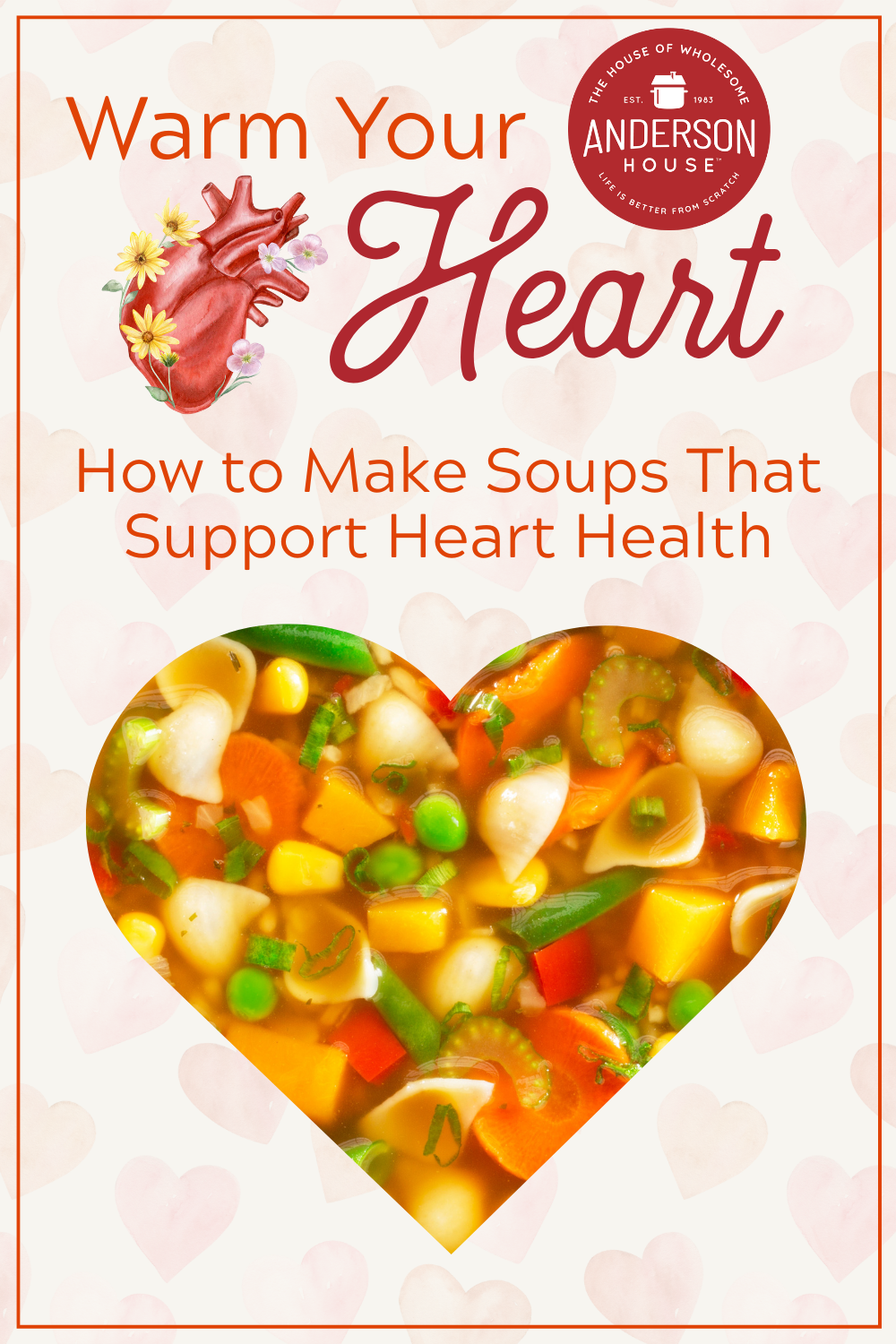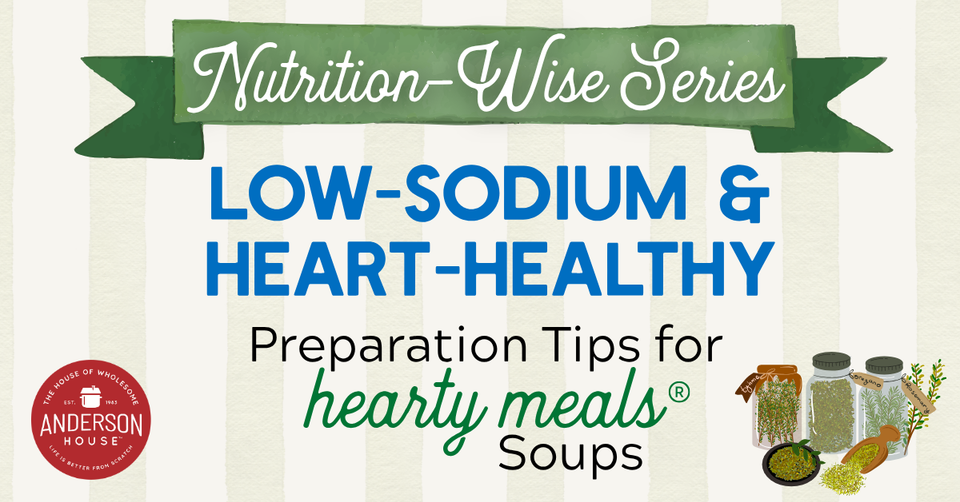Warm Your Heart: How to Make Soups That Support Heart Health
Feb 1st 2016
Heart disease remains the leading cause of death worldwide—but the good news is, small daily choices can make a real difference. One of the easiest and most comforting ways to support heart health is by making nutritious homemade soups.
Soups aren’t just cozy; they can also be a powerful tool for eating more vegetables, whole grains, lean proteins, and heart-smart fats—without breaking the bank. Here’s how to turn your next pot of soup into a heart-healthy meal the whole family can feel good about.
Why Soup Can Be Great for Your Heart
According to UC Davis Health, soups are naturally nutrient-dense because they often contain a mix of vegetables, legumes, and whole grains. They’re also filling and hydrating, which can help with weight management—a key factor in lowering heart disease risk.
Plus, making soup at home gives you total control over the ingredients: you can limit sodium, skip added sugars, and choose healthy fats.
Simple Tips for Heart-Healthy Soups
- Go heavy on the vegetables.
Add extra servings of colorful veggies—fresh, frozen, or even leftover roasted vegetables. These boost fiber, vitamins, and minerals without adding many calories. - Choose heart-smart fats.
Instead of butter or cream, try a drizzle of extra virgin olive oil, which is rich in monounsaturated fats linked to better cholesterol levels (Heart UK). - Use whole grains and legumes.
Ingredients like barley, quinoa, brown rice, lentils, and beans add texture, fiber, and plant-based protein that support healthy cholesterol levels (Medical News Today). - Season with herbs and spices, not salt.
Lowering sodium is key for managing blood pressure. Fresh herbs, garlic, ginger, turmeric, and pepper add flavor without extra salt (Heart & Stroke Canada). - Lean proteins, not processed meats.
If you add meat, go for skinless chicken, turkey, or fish instead of processed sausages or cured meats that are often high in sodium and saturated fat.
Budget-Friendly and Nutritious
Healthy eating doesn’t have to mean expensive ingredients. As the American Heart Association reminds us, frozen vegetables, dried beans, and affordable whole grains can stretch your dollar without sacrificing nutrition. A big pot of soup can feed your family multiple meals—perfect for meal prep.
Comfort Food That Loves You Back
It’s easy to think of “comfort food” as something heavy or indulgent. But as Everyday Health suggests, comfort food can also be balanced, nourishing, and good for your heart. A warm bowl of soup filled with colorful veggies, lean protein, and whole grains can be just as satisfying—without the extra saturated fat or sodium.
Make Heart-Healthy Soup Part of Your Routine
Eating well for your heart isn’t about perfection—it’s about small, sustainable choices. Adding one or two heart-smart soups to your weekly meal plan can help you and your family get more fiber, vitamins, and healthy fats, all while enjoying comforting, homemade meals.
For more inspiration, explore soup mixes and recipes that use whole ingredients and no added salt or preservatives, so you can season to your own taste and health goals.



